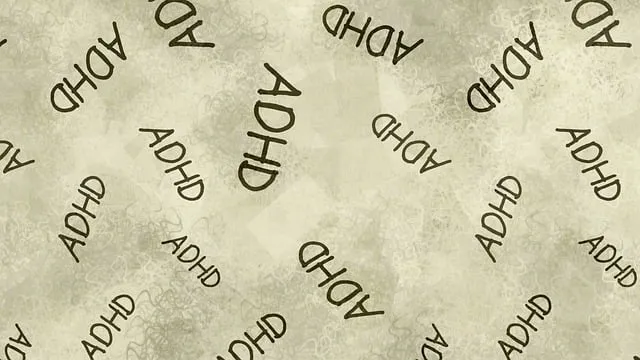The Wheat Ridge Kaiser mental health programs offer a comprehensive approach to achieving emotional balance through mood regulation. Tailored strategies include cultivating emotional intelligence, stress management workshops, mindfulness practices, cognitive reframing, and building resilience. These programs combine individual therapy, group support, and evidence-based practices with stigma reduction initiatives, empowering individuals to take charge of their mental health through empathy building, consistent self-care routines, and healthy lifestyle habits like exercise, nutrition, and sleep. Cultural competency training ensures these strategies align with personal values and cultural beliefs, while mental wellness coaching further tailors them to individual needs.
Mood regulation is a vital aspect of emotional well-being, and finding effective strategies can significantly enhance quality of life. This article explores various techniques to achieve and maintain emotional balance, drawing insights from Wheat Ridge Kaiser Mental Health Programs’ expertise. We’ll delve into understanding mood dynamics, practical management strategies, and the transformative power of healthy lifestyle habits, all backed by evidence-based practices. Discover how these approaches can help individuals navigate their emotional landscapes with greater resilience.
- Understanding Mood Regulation: Unraveling Emotional Balance
- Wheat Ridge Kaiser Mental Health Programs: An Overview
- Strategies for Effective Mood Management: Practical Approaches
- Integrating Healthy Habits: Lifestyle Changes for Optimal Well-being
Understanding Mood Regulation: Unraveling Emotional Balance

Understanding Mood Regulation is a pivotal step in achieving emotional balance. At Wheat Ridge Kaiser mental health programs, we recognize that managing moods effectively involves a multifaceted approach tailored to each individual’s unique needs. Our comprehensive strategies delve into various techniques, from cultivating emotional intelligence to implementing stress management workshops within organizations, aiming to empower folks with the tools needed for inner strength development.
This process often begins by acknowledging and understanding one’s emotional responses. By participating in our programs, individuals learn to recognize triggers, identify feelings, and develop healthy coping mechanisms. This includes mastering mindfulness practices, cognitive reframing techniques, and building a resilient mindset—all key components in navigating life’s challenges with grace and equilibrium.
Wheat Ridge Kaiser Mental Health Programs: An Overview

Wheat Ridge Kaiser Mental Health Programs offer a comprehensive array of services designed to support individuals in navigating their mental health journeys. These programs prioritize emotional well-being promotion techniques through individual therapy, group support sessions, and evidence-based practices tailored to diverse needs. The focus extends beyond treating specific disorders; it encompasses fostering positive thinking and building resilience to stress and adversity.
Unique among Wheat Ridge Kaiser’s offerings are initiatives aimed at mental illness stigma reduction efforts. By creating safe spaces for open dialogue and education, these programs work to dispel misconceptions surrounding mental health challenges, encouraging early intervention and improved quality of life. Through a multi-faceted approach that combines clinical expertise with community engagement, Wheat Ridge Kaiser Mental Health Programs strive to enhance the overall mental wellness of individuals they serve.
Strategies for Effective Mood Management: Practical Approaches

Managing one’s mood effectively is a valuable skill that can significantly impact overall well-being. The good news is that there are numerous practical strategies to help individuals navigate and stabilize their emotional states. These approaches, often taught through programs like those offered by Wheat Ridge Kaiser Mental Health, empower people to take charge of their mental health.
One such strategy is Empathy Building Strategies, which involve fostering understanding and compassion for oneself and others. Encouraging self-reflection and recognizing emotions as signals from the body can help individuals process and manage them constructively. Additionally, Mindfulness Meditation plays a crucial role in calming the mind and increasing awareness of the present moment, allowing for better emotional regulation. Establishing a consistent Self-Care Routine Development for Better Mental Health is another powerful tool; activities such as regular exercise, sufficient sleep, and engaging hobbies can positively influence mood and overall mental resilience.
Integrating Healthy Habits: Lifestyle Changes for Optimal Well-being

Integrating healthy habits into your daily routine is a key component of mood regulation and overall well-being. Wheat Ridge Kaiser mental health programs emphasize lifestyle changes as a powerful tool for managing stress, anxiety, and improving mental health. This includes adopting regular exercise routines, focusing on a balanced diet rich in nutrients, and prioritizing quality sleep. These foundational practices not only support emotional stability but also enhance resilience to life’s challenges.
Moreover, healthcare provider cultural competency training highlights the importance of aligning these habits with personal values and cultural beliefs for optimal effectiveness. Mental wellness coaching programs development offers guidance on tailoring these strategies to individual needs, ensuring that techniques like mindfulness, stress-reduction practices, and social connections are incorporated in a way that resonates with each person’s unique circumstances.
Mood regulation is a vital aspect of well-being, and with the right strategies, individuals can achieve emotional balance. This article has explored various techniques, from understanding mood dynamics to integrating healthy habits, all of which contribute to optimal mental health. The Wheat Ridge Kaiser Mental Health Programs offer comprehensive resources, providing practical tools for managing moods effectively. By combining professional support with lifestyle changes, one can navigate their emotional landscape and enhance overall well-being.






